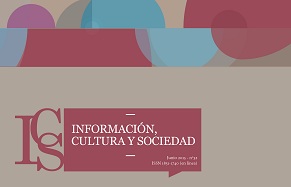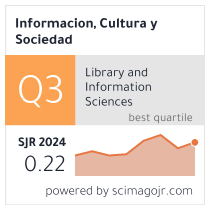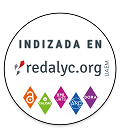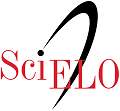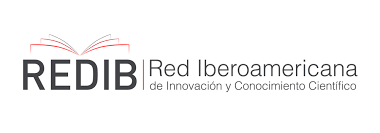Information competencies in contexts of public secondary education in Montevideo, Uruguay
Abstract
This article presents the main results and conclusions of an R&D project that aimed to recognize information skills in first-year students of public high schools in Montevideo, Uruguay, as it is understood that this moment of their educational journey serves as a turning point at the end of the primary cycle and the beginning of their schooling in secondary education. The research used a mainly quantitative methodology, in which a web form was applied with activities linked to the different information competencies expected for students of the aforementioned level and, from said form, the results were studied. The article presents the main results obtained from the activities carried out by the students. As main results, various difficulties of students are evident when determining what their information needs are, designing search strategies and evaluating and selecting information sources. It is concluded that it is necessary to integrate in a more concrete way instances of teaching and learning whose objective is the construction of competencies in information.Downloads
References
Chaverrra Fernández, Dora. 2011. Las habilidades metacognitivas en la escritura digital. En Revista Lasallista de Investigación. Vol. 8, no. 2, 104-111. <http://www.scielo.org.co/scielo.php?script=sci_arttext&pid=S1794-44492011000200012> [Consulta: 30 septiembre 2022].
Crary, Sarah. 2019. Secondary Teacher Perceptions and Openness to Change Regarding Instruction in Information Literacy Skills. En School Library Research. Vol. 22. <https://eric.ed.gov/?id=EJ1221655> [Consulta: 30 septiembre 2022].
Díaz Gutiérrez, Edilma L., Andrea C. Alarcón Aldana y Mauro Callejas Cuervo. 2013. Criterios para la evaluación de usabilidad en entornos virtuales de aprendizaje. En Ventana Informática. No. 29, 29-44. <https://revistasum.umanizales.edu.co/ojs/index.php/ventanainformatica/article/view/242/327> [Consulta: 30 septiembre 2022].
Dolničar, Danica, Bojana Boh Podgornik, Tomaž Bartol y Andrej Šorgo. 2020. Added value of secondary school education toward development of information literacy of adolescents. En Library & Information Science Research. Vol. 42, no. 2, 101016. <https://doi.org/10.1016/j.lisr.2020.101016>
Dutra, Federico Giffoni y Ricardo Rodrigues Barbosa. 2017. Modelos e critérios para avaliação da qualidade de fontes de informação: uma revisão sistemática de literatura. En Informação & Sociedade: Estudos. Vol. 27, no. 2, 19-33. <https://periodicos.ufpb.br/index.php/ies/article/view/32676> [Consulta: 30 septiembre 2022].
Gerrity, Caitlin. 2018. The new national school library standards: Implications for information literacy instruction in higher education. En The Journal of Academic Librarianship. Vol. 44, no. 4, 455-458. <https://doi.org/10.1016/j.acalib.2018.05.005>
Hjorland, Birger. 2011. Evaluation of an Information Source illustrated by a case study: effect of screening for breast cancer. En Journal of the American Society for Information Science and Technology Vol. 62, no. 10, 1892-1898. <http://onlinelibrary.wiley.com/doi/abs/10.1002/asi.21606>
Hollis, Helena. 2018. Information literacy as a measurable construct: A need for more freely available, validated and wide ranging instruments. En Journal of Information Literacy. Vol. 12, no. 2, 76–88. <https://doi.org/10.11645/12.2.2409>
Jacobi, Greison. 2022. Fontes, busca e seleção da informação. En Borges, J., G. Brandão y S. S. Barros, eds. Educação para a informação: como promover competências infocomunicacionais. São Paulo: Pimenta Cultural. p. 63-70. <https://doi.org/10.31560/pimentacultural/2022.234.63-70>
Merlo Vega, José Antonio. 2003. La evaluación de la calidad de la información web: aportaciones teóricas y experiencias prácticas. En Zapico Alonso, F., coord. Recursos informativos: creación, descripción y evaluación. Mérida: Junta de Extremadura. p. 101-110. <https://gredos.usal.es/jspui/bitstream/10366/17956/1/DBD_Ev.%20calidad%20inf.%20web.pdf> [Consulta: 30 septiembre 2022].
Modelo Pindó: un modelo de alfabetización en información para el Plan Ceibal. (2015). Ceretta Soria, María Gladys y Álvaro Gascue Quiñones, coords. Montevideo: CSIC, Universidad de la República. <https://www.csic.edu.uy/content/modelo-pind%C3%B3> [Consulta: 30 septiembre 2022].
Parsazadeh, Nadia, Rosmah Ali y Mehran Rezaei. 2018. A framework for cooperative and interactive mobile learning to improve online information evaluation skills. En Computers & Education. Vol. 120, 75-89. <https://doi.org/10.1016/j.compedu.2018.01.010>
Sanz, Cecilia y Alejandra Zangara. 2012. La escritura colaborativa como una e-actividad. En Workshop Tecnología informática aplicada en educación (WTIAE). En XVIII Congreso Argentino de Ciencias de la Computación, realizado en Bahía Blanca del 8 al 12 de octubre de 2012. <http://sedici.unlp.edu.ar/handle/10915/23661> [Consulta: 30 septiembre 2022].
Schellman, Jorge. 2016. IIC 3633 - Sistemas Recomendadores. Informe final. Santiago de Chile: Pontificia Universidad Católica de Chile. Escuela de Ingeniería. Departamento de Ciencia de la Computación. <https://dparra.sitios.ing.uc.cl/classes/recsys-2016-2/students/final_projects/G14%20-%20Schellman.pdf> [Consulta: 30 septiembre 2022].
Shannon, Christine, Jacqueline Reilly y Jessica Bates. 2019. Teachers and information literacy: understandings and perceptions of the concept. En Journal of Information Literacy. Vol. 13, no. 2, 41-72.
Authors publishing in this journal acknowledge the conditions below:
- Authors retain the copyright of their work while they transfer the right of the first publishing to the journal, under the Creative Commons Attribution-ShareAlike 4.0 International (CC BY-SA 4.0) Licence, which allows third parties to reproduce them under the condition that express mention is given to the author and to its original publication in the journal.
- Authors may enter into other contractual and independent arrangements for the non-exclusive distribution of the version of the article published in this journal (for instance, it can be published in an institutional repository or in a book). In any case, an express mention should be given to its first publication in the journal.
- It is permitted and encouraged to publish online the articles (for example, on institutional or personal pages).
